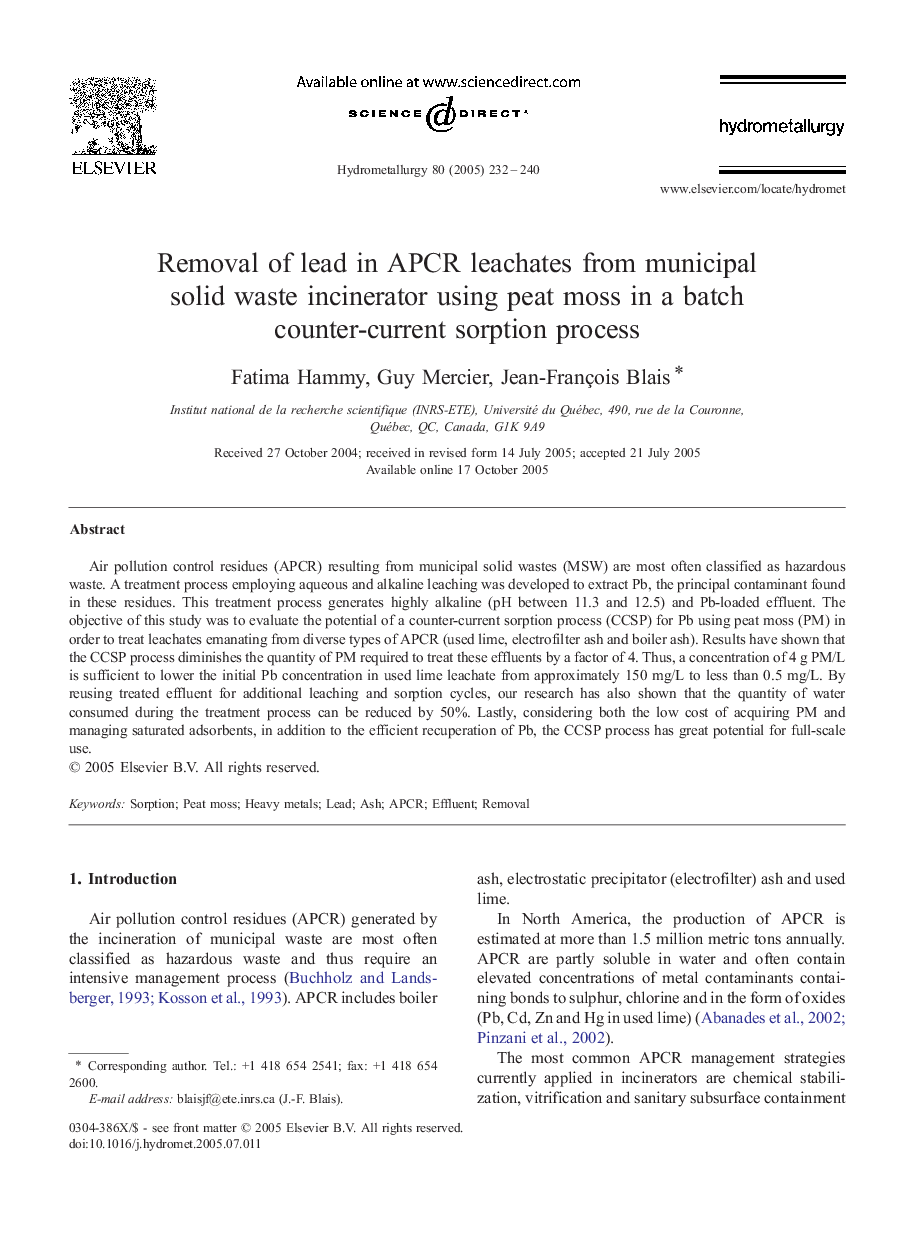| Article ID | Journal | Published Year | Pages | File Type |
|---|---|---|---|---|
| 9632484 | Hydrometallurgy | 2005 | 9 Pages |
Abstract
Air pollution control residues (APCR) resulting from municipal solid wastes (MSW) are most often classified as hazardous waste. A treatment process employing aqueous and alkaline leaching was developed to extract Pb, the principal contaminant found in these residues. This treatment process generates highly alkaline (pH between 11.3 and 12.5) and Pb-loaded effluent. The objective of this study was to evaluate the potential of a counter-current sorption process (CCSP) for Pb using peat moss (PM) in order to treat leachates emanating from diverse types of APCR (used lime, electrofilter ash and boiler ash). Results have shown that the CCSP process diminishes the quantity of PM required to treat these effluents by a factor of 4. Thus, a concentration of 4 g PM/L is sufficient to lower the initial Pb concentration in used lime leachate from approximately 150 mg/L to less than 0.5 mg/L. By reusing treated effluent for additional leaching and sorption cycles, our research has also shown that the quantity of water consumed during the treatment process can be reduced by 50%. Lastly, considering both the low cost of acquiring PM and managing saturated adsorbents, in addition to the efficient recuperation of Pb, the CCSP process has great potential for full-scale use.
Related Topics
Physical Sciences and Engineering
Chemical Engineering
Chemical Engineering (General)
Authors
Fatima Hammy, Guy Mercier, Jean-François Blais,
